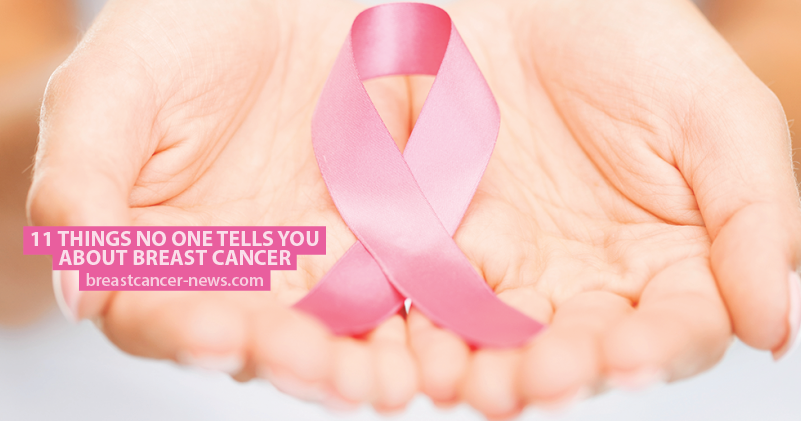We may seem to know a lot about breast cancer, but there is so much information out there that it can be difficult to process it all. Oftentimes, when talking about breast cancer to patients and survivors, we’re unsure how to discuss the subject without offending anyone or speaking out of turn.
To help you understand more about this disease and what to say and what not to say about it, we’ve put together a list of 11 crucial things no one tells you about breast cancer (source: BuzzFeed):
1. Even though being positive is extremely important to help you deal with your disease, you can’t overcome breast cancer just with a strong will.
“I wish people would stop saying they ‘beat’ cancer. I saw a commercial the other day that featured a breast cancer survivor saying that ‘you can do anything you set your mind to.’ It’s not that simple.”
—Miranda Hermanski, Facebook



Breast Cancer, if it is Triple Negative, is in no way any sort of “good cancer” (not that there really is any “good cancer”. But TNBC, at this point in history, is always deadly if metastatic, and it is absurd that research is so behind the curve on the one “bad” breast cancer, TNBC. But many things in treatment of other hormone positive breast cancers are outmoded, haven’t progressed in over 30 years and are unnecessarily mutilating and debilitating women in many cases. Look on Komen and see what the percentage of improvement in survival is with chemotherapy vs without for all types of BC–4%! Factor out the TNBC patients (about 50% of whom respond to chemotherapy), and the rest of hormone positive patients, excepting HER2 perhaps, don’t receive any benefit, except reducing the inflammatory reaction around the tumor perhaps. Much NEW analysis of how the breast cancers are approached must be swiftly addressed. This can be done in no time with a computerized data base for all breast cancer patients to centralize outcomes, morbidity, treatment approach utilized. Then we can make real changes in the management of the different types of disease to minimize surgical mutilation and the use of toxic chemotherapeutic agents that result in nasty side effects and weakening of the patient, and see improvement in saving the lives of hundreds of thousands of women.